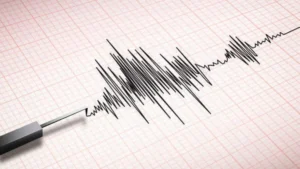In a rare and deadly airstrike, Israel killed a top Hezbollah commander in the densely populated southern Beirut neighborhood of Dahiya on Friday. According to Lebanese authorities, the strike resulted in the deaths of at least 14 people, with dozens more wounded in what is considered one of the deadliest attacks on Lebanon’s capital in decades.
Rear Adm. Daniel Hagari, the Israeli military’s chief spokesman, confirmed that the strike had targeted Ibrahim Akil, a senior commander of Hezbollah’s elite Radwan Force, along with 10 other Hezbollah operatives. Hagari remarked that the operation in Beirut was part of Israel’s broader efforts to defend its citizens.
“We will continue pursuing our enemies in order to defend our citizens, even in Dahiya, in Beirut,” Israeli Defense Minister Yoav Gallant said, describing the strike as part of “a new phase of war.”
Hezbollah Confirms Death of High-Ranking Leader
Several hours after the strike, Hezbollah confirmed Akil’s death. In a statement, the militant group hailed Akil as “a great jihadist leader” who had dedicated his life to Hezbollah’s cause. Akil was sanctioned by the United States for his involvement in the 1983 bombing of the U.S. Embassy in Beirut, which killed over 300 people.
READ MORE: Crisis In Haiti Is Worsening Rapidly: United Nations’ Expert
Hezbollah described Akil’s legacy as one of “jihad, work, wounds, sacrifices, dangers, challenges, achievements, and victories.”
Escalating Conflict Between Israel and Hezbollah
This latest attack has stoked fears of a broader war in the Middle East as tensions continue to rise between Israel and Hezbollah. Hours before Israel’s strike, Hezbollah had launched a barrage of 140 rockets into northern Israel, targeting military sites. The Israeli Iron Dome intercepted most of the rockets, with minimal damage reported.
Lebanon’s Health Ministry reported that at least 14 civilians were killed in Israel’s strike, which flattened an apartment building in Dahiya. First responders worked late into the night, sifting through rubble to rescue survivors trapped in the collapsed high-rise.
Friday’s airstrike was the deadliest attack on Beirut since the 2006 war between Israel and Hezbollah and occurred during rush hour, as civilians were leaving work and children were returning home from school.
Regional Response and Future Outlook
Israel’s defense minister, Yoav Gallant, briefed senior military officials on the strike and vowed to continue operations against Hezbollah until security was restored for Israel’s northern communities.
Hezbollah has vowed to retaliate. The group launched additional attacks on northern Israel following the airstrike, further intensifying the conflict. These strikes targeted an Israeli intelligence base, according to Hezbollah, which claimed that the base was responsible for directing assassinations of its leaders.
“We are in a tense period,” Hagari said, noting Israel’s heightened state of readiness. He also warned of more aggressive actions from Hezbollah in the coming days.
Gaza and Regional Implications
While the focus shifts to the escalating Israel-Hezbollah conflict, violence continues in the Gaza Strip. Palestinian authorities reported that at least 15 people, including children, were killed in Israeli airstrikes in Gaza City early Friday.
Israel’s ongoing military campaign in Gaza, initiated after Hamas’ deadly Oct. 7 assault on southern Israel, has caused widespread destruction. According to Gaza’s Health Ministry, over 41,000 Palestinians have been killed, though the numbers do not distinguish between civilians and fighters.
The recent developments reflect a dangerous intensification of regional conflict, with fears of an all-out war looming over the Middle East. Despite international efforts to de-escalate, the violence between Israel and Hezbollah, as well as the ongoing crisis in Gaza, shows no signs of slowing down.
(Includes inputs from online sources)
ALSO READ: Fukushima Water Release: China And Japan Reach Mutual Understanding























